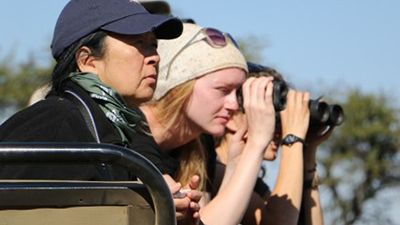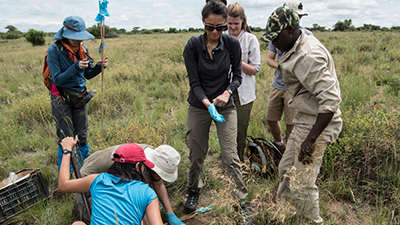プログラム調査日程・空き状況・参加費用等、海外調査に関するお問い合わせは、アースウォッチ・ジャパン事務局にて承ります。info@earthwatch.jp までお気軽にお問い合わせください。
Rhinos are believed to play an important role as “ecosystem engineers.” Help scientists to understand their impact on the environment to help conserve and manage rhinos in South Africa.
On the black markets in Southeast Asia, rhino horn is reported to be worth more than gold. As a result, widespread poaching has decimated rhino populations around the world, including in South Africa – home to three-quarters of the world’s rhino population. The situation is urgent: if poaching continues at its current rate, it is estimated that rhinos may become extinct within the next 20 years. But what would this mean for the ecosystems they support?
Help researchers to study the impact of rhinos on their environment and how it could be affected by their disappearance. This work will help researchers and policy makers to understand their functional role as an ecosystem service engineer, which may help to better protect these animals. You will also assess the impact of current management approaches to conserve rhinos and reduce risks to their populations. For example, how does de-horning impact rhinos’ behavior and their relationship to other animals?
Observe rhino daily either from a game viewer or on foot while observing many other species of South African wildlife – study rhino behavior, record their positions, monitor their feeding habits, and assess their relationship to their environment. Through these activities, you will inform efforts to conserve and manage rhino populations in South Africa.
HOW YOU WILL HELP
When you arrive, the researchers will conduct an orientation and brief you on the work you’ll be doing. Field work will begin on the second day, where you will be involved with:
.
RHINO MONITORING AND BEHAVIOR
Find and record locations of individual rhinos to assess their geographic distribution; observe and record their behavior.

RHINO SPECIES ASSOCIATIONS
Survey birds and mammals to assess their species richness and populations in areas where rhinos are and are not present.

VEGETATION SURVEYS
When the animals move off of foraging sites, record the vegetation in the area to assess habitat use.
